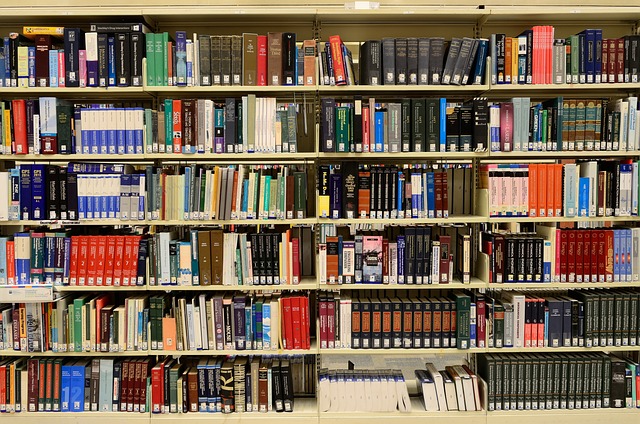The UK's stringent R&D documentation standards require precise translations for international collaboration, avoiding legal issues. Professional translation services specializing in scientific terminology and British English nuances are crucial for accurate, compliant translations of research proposals, protocols, data reports, and patent applications. Combining human experts and machine translation tools ensures efficient, reliable, and locally-compliant R&D document translation.
Are your UK R&D documents aligned with local standards? Navigating the complex landscape of research documentation can be challenging, especially when dealing with multiple languages. This article explores the intricacies of UK Research and Development (R&D) document requirements, highlighting the crucial role of translation services in ensuring compliance. We delve into common challenges, best practices, and strategies to mitigate potential pitfalls, emphasizing the importance of accurate and reliable translation services for your R&D endeavors.
- Understanding UK Research and Development (R&D) Document Requirements
- The Role of Translation Services in Ensuring Compliance
- Common Challenges in Translating R&D Documentation
- Best Practices for Accurate and Reliable Translation Services
Understanding UK Research and Development (R&D) Document Requirements

Understanding UK R&D Document Requirements
When it comes to UK Research and Development (R&D) documents, adhering to local standards is paramount for any organization seeking to conduct or report research within the country. These documents play a crucial role in ensuring compliance with regulatory frameworks and facilitating smooth operations. Key among these requirements are clear, concise, and accurate translations, especially when dealing with international researchers or partners. Translation services for UK R&D documents are essential tools to bridge this gap, enabling seamless communication and avoiding potential pitfalls caused by language barriers.
Proper documentation includes detailed research proposals, experimental protocols, data reports, and patent applications. Each of these requires meticulous attention to detail, reflecting the innovative nature of R&D work while also meeting specific formatting and content standards set by UK regulatory bodies. Failure to tailor your documents to local standards can lead to delays, additional costs, or even legal complications, underscoring the importance of professional translation services to navigate this landscape effectively.
The Role of Translation Services in Ensuring Compliance

In the realm of UK Research and Development (R&D) documentation, accuracy and compliance are paramount. One critical aspect often overlooked is the importance of translation services to ensure these documents meet local standards. As R&D often involves international collaboration, translations become indispensable, especially with strict regulations in place. Professional translation services for UK R&D documents are essential to guarantee clarity and precision across languages.
Translation goes beyond simple word-for-word substitution; it involves understanding the context, scientific terminology, and cultural nuances specific to the UK market. Skilled translators can adapt content, ensuring it adheres to local guidelines while maintaining the integrity of the original research. This meticulous process is vital to avoid misinterpretations or non-compliance that could hinder the R&D’s progress and impact.
Common Challenges in Translating R&D Documentation

Many organisations, especially those operating in multiple countries, face challenges when it comes to translating their R&D documentation. Accurate and consistent translation is crucial for ensuring compliance with local standards and regulations, particularly within the UK where specific guidelines and requirements apply. A common hurdle is the nuanced language used in technical fields, which can be difficult to render into another language while maintaining scientific integrity.
Another challenge lies in the diverse range of document types, from research proposals and patent applications to clinical trial reports and product specifications. Each requires a tailored approach, and using professional translation services becomes essential to navigate these complexities. These services employ experts who understand not just the language but also the technical terminology specific to R&D, ensuring that documents are accurately translated and meet UK standards.
Best Practices for Accurate and Reliable Translation Services

When it comes to translating UK Research and Development (R&D) documents, accuracy and reliability are paramount. To ensure your translations meet local standards, engage professional translation services that have a deep understanding of both scientific terminology and British English nuances. Reputable translators should follow best practices such as using qualified human translators who specialize in your field, performing thorough quality assurance checks, and adhering to industry-specific terminology guidelines.
Additionally, leveraging advanced translation technologies like machine translation (MT) tools can significantly enhance efficiency while maintaining accuracy. However, MT should be fine-tuned and post-edited by human experts to capture subtle meanings and cultural nuances that might be lost in automated translations. By combining these best practices, you can ensure your UK R&D documents are accurately translated, reliable, and compliant with local standards.
Ensuring your UK Research and Development (R&D) documents meet local standards is vital for compliance and success. By leveraging translation services tailored for these requirements, you can overcome language barriers and maintain the integrity of your work. Remember, accurate and reliable translation is key to navigating the complexities of R&D documentation in the UK, ensuring your efforts resonate clearly and effectively within the local landscape. Translation services for UK R&D documents play a crucial role in fostering compliance and enhancing your research’s global impact.
